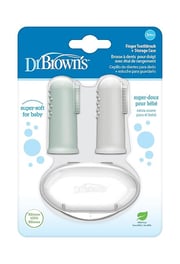February is National Children's Dental Health Month
Every February marks the commencement of National Children’s Dental Health Month, an annual celebration where the American Dental Association (ADA) acknowledges dental professionals and raises awareness about pediatric dental hygiene.
Welcome to my blog post dedicated to children's oral health and dental hygiene!
Ensuring your child's oral health is crucial for their overall well-being. In this guide, we'll explore essential tips and practices to keep your little one's smile bright and healthy.
Importance of Children's Oral Health:
Good oral hygiene habits established in childhood can have a lifelong impact on dental health. From preventing cavities to promoting healthy gums, taking care of your child's teeth early on sets the foundation for a lifetime of healthy smiles.
Tips for Maintaining Children's Oral Health:
Start Early: Begin cleaning your baby's gums even before the first tooth appears using a soft, damp cloth or finger brush
Brush Twice Daily: Once teeth emerge, brush them gently with a child-sized toothbrush and fluoride toothpaste twice a day. For children under 3, a smear no larger than a grain of rice is recommended, while a pea-sized amount of toothpaste is appropriate for children aged 3 to 6. Children aged 6 and up can use a regular-sized amount of toothpaste.
Supervise and Aid with Brushing: Until your child can independently brush effectively, typically around age 7, it's important to supervise their brushing sessions to ensure thorough cleaning. You may let the child brush initially and then follow up by brushing again yourself to ensure proper cleaning.
Healthy Diet: Encourage a balanced diet rich in fruits, vegetables, and dairy products, and limit sugary snacks and drinks. examples to avoid or have in moderation: fruit snacks, crackers, juice, and soda.
Regular Dental Check-ups: Schedule regular visits to the dentist for check-ups and professional cleanings, starting around their first birthday or 6 months after their first tooth erupts.
Addressing Common Concerns:
Thumb-Sucking and Pacifier Use: While common in infancy, prolonged thumb-sucking or pacifier use can affect dental development. Encourage your child to stop these habits gradually. best if stopped by age 3.
Teething Troubles: Provide teething rings or gently massage your baby's gums to ease discomfort during teething.
Dental Emergencies: Be prepared for dental emergencies like knocked-out teeth or toothaches by having a dental first aid kit and knowing what steps to take. call your dental home if an emergency arises.
Educational Resources: Explore educational materials and interactive games to make learning about oral hygiene fun for your child. Many organizations, including the American Dental Association, offer online resources tailored for kids.
As you have learned, by prioritizing children's oral health and teaching them proper dental hygiene habits from a young age, you're setting them up for a lifetime of healthy smiles. Remember, prevention is key, so start early and make oral health a priority in your family's routine.


